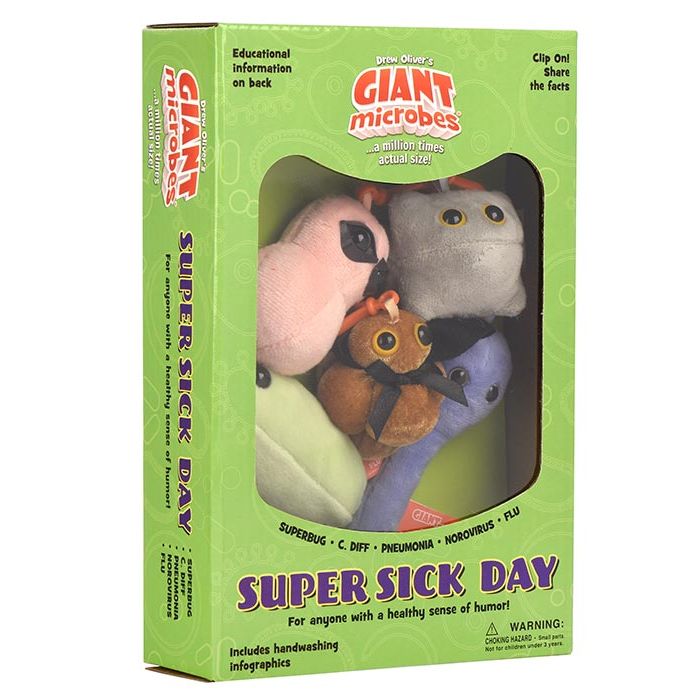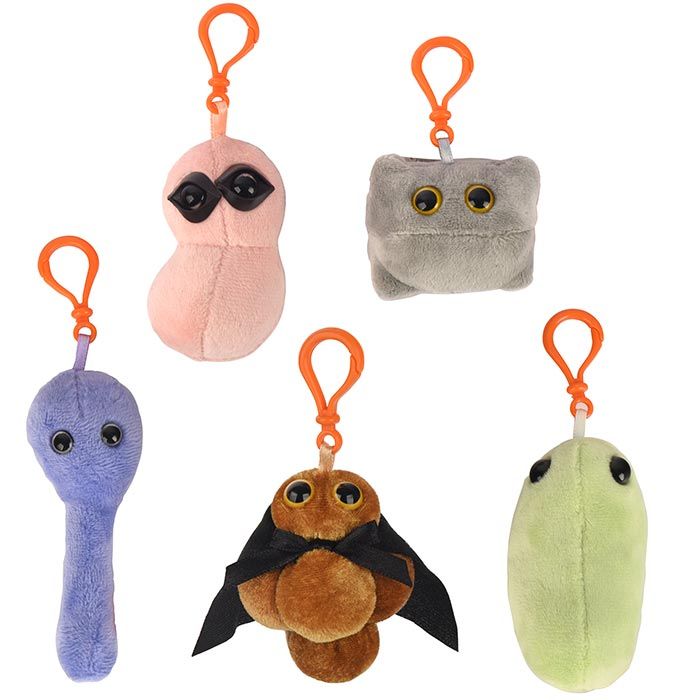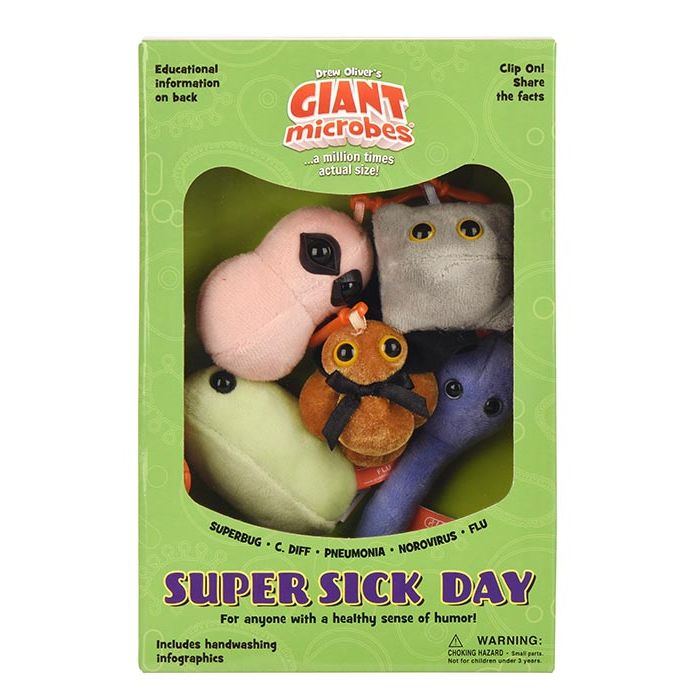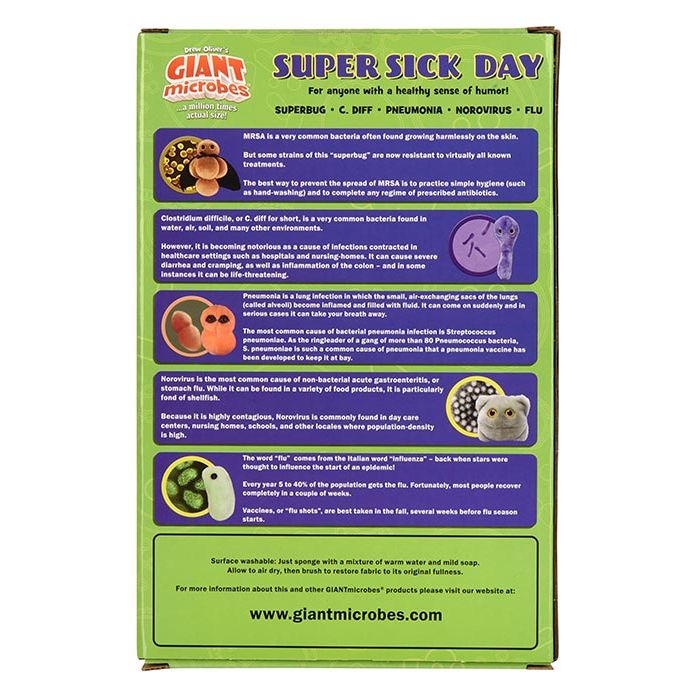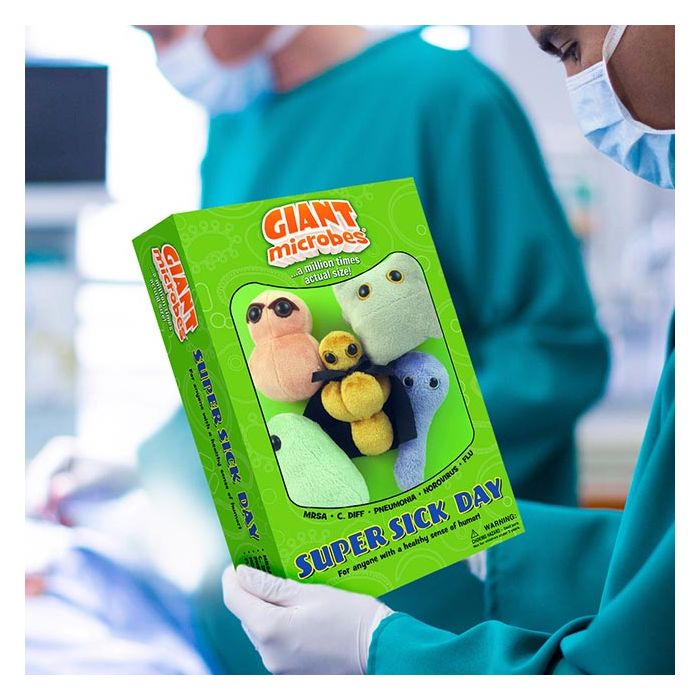Super Sick Day
Out of Stock
Super Sick Day themed gift box includes these mini microbes: MRSA, Pneumonia, Norovirus, Flu and C. Diff.
Clip them onto your backpack, keys or anywhere! Includes key chain clips.
Product Details
Additional Information
| Sizes | Giantmicrobes are based on actual microbes, cells, organisms and other critters, only 1,000,000 times actual size! Gigantic (GG) 16-24" XL (XL) 10-15" Original (PD) 5-8" Keychain (KC) 2-4" with clip |
|---|---|
| Materials | Plush from all new materials. Stuffed with polyester fiber fill. Surface washable: sponge with water & soap, air dry. |
| Packaging | Each plush microbe includes a printed card with fun, educational and fascinating facts about the actual microbe or cell. |
| Safety | Every product meets or exceeds U.S. and European standards for safety. For ages 3 and up. |
All about Super Sick Day
MRSA
MRSA is a very common bacteria often found growing harmlessly on the skin.
But some strains of this “superbug” are now resistant to virtually all known treatments.
The best way to prevent the spread of MRSA is to practice simple hygiene (such as hand-washing) and to complete any regime of prescribed antibiotics.
C. Diff
Clostridium difficile, or C. diff for short, is a very common bacteria found in water, air, soil, and many other environments.
However, it is becoming notorious as a cause of infections contracted in healthcare settings such as hospitals and nursing-homes. It can cause severe diarrhea and cramping, as well as inflammation of the colon – and in some instances it can be life-threatening.
Pneumonia
Pneumonia is a lung infection in which the small, air-exchanging sacs of the lungs (called alveoli) become inflamed and filled with fluid. It can come on suddenly and in serious cases it can take your breath away.
The most common cause of bacterial pneumonia infection is Streptococcus pneumoniae. As the ringleader of a gang of more than 80 Pneumococcus bacteria, S. pneumoniae is such a common cause of pneumonia that a pneumonia vaccine has been developed to keep it at bay.
Norovirus
Norovirus is the most common cause of non-bacterial acute gastroenteritis, or stomach flu. While it can be found in a variety of food products, it is particularly fond of shellfish.
Because it is highly contagious, Norovirus is commonly found in day care centers, nursing homes, schools, and other locales where population-density
is high.
Flu
The word “flu” comes from the Italian word “influenza” – back when stars were thought to influence the start of an epidemic!
Every year 5 to 40% of the population gets the flu. Fortunately, most people recover completely in a couple of weeks.
Vaccines, or “flu shots”, are best taken in the fall, several weeks before flu season starts.







